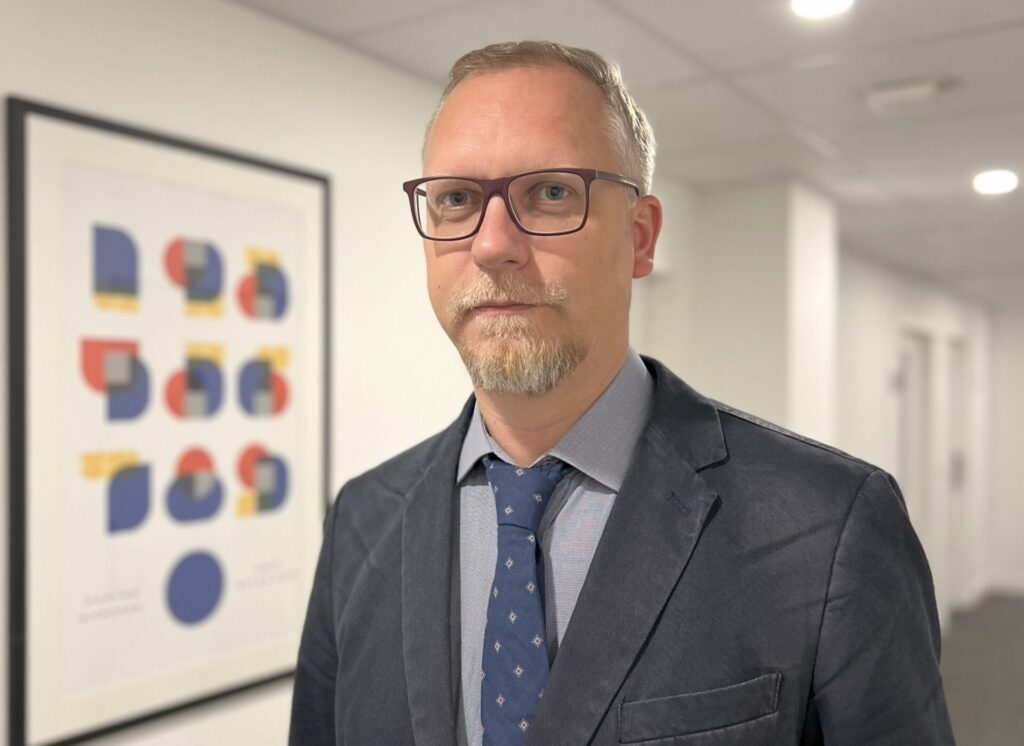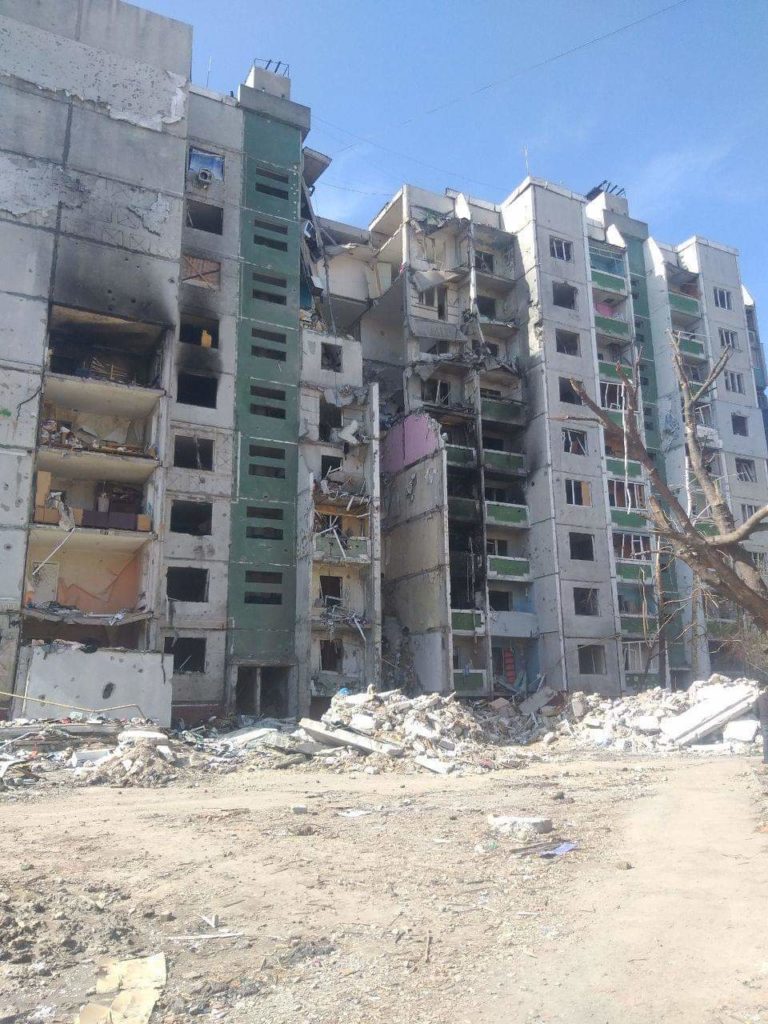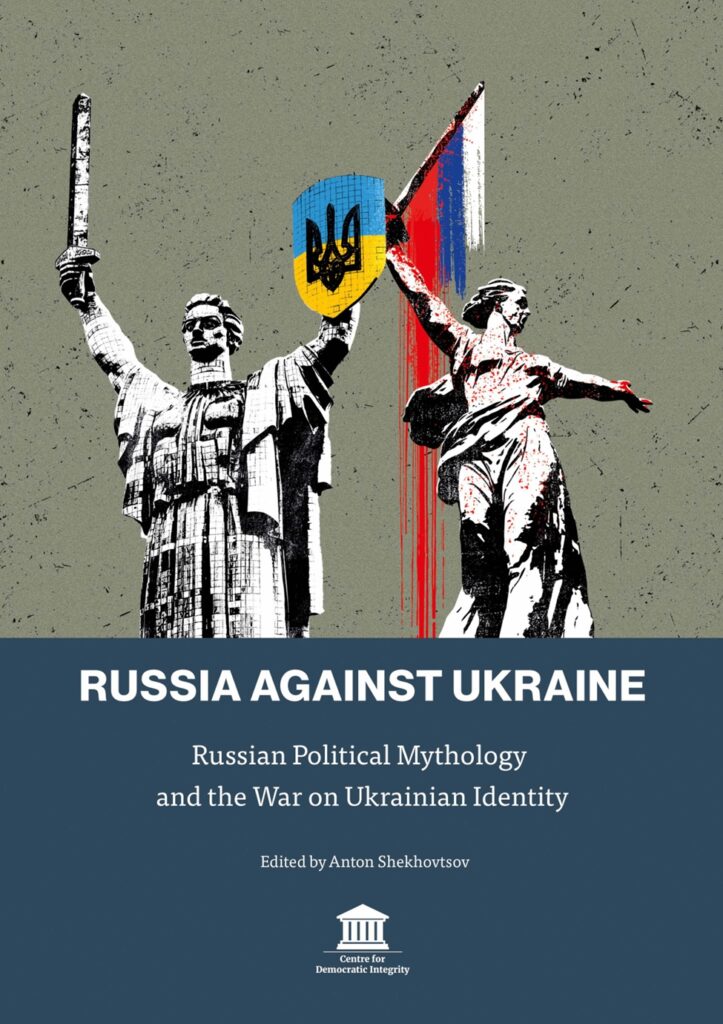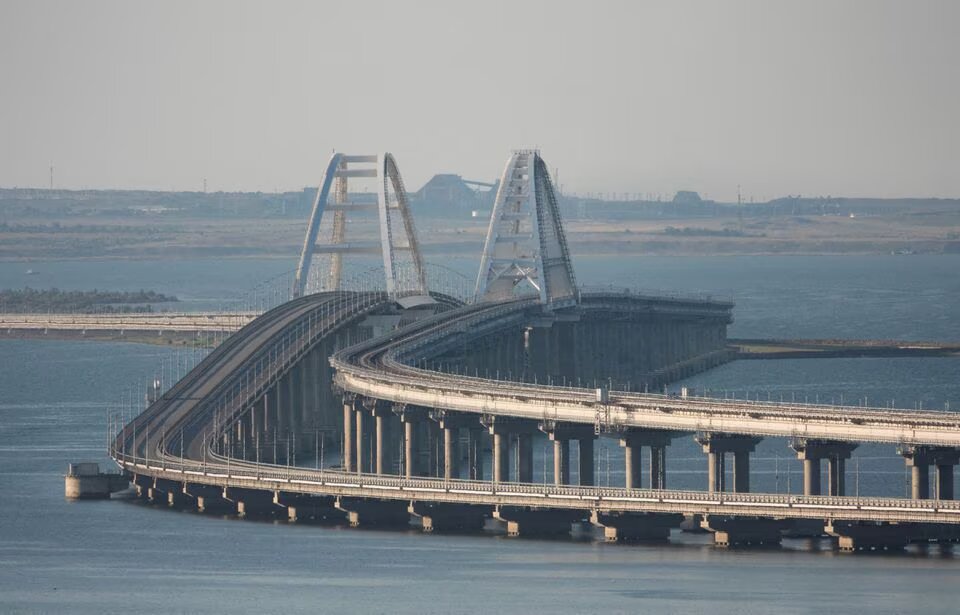“Putin goes beyond Stalin” in denying Ukraine’s right to exist

Euromaidan Press spoke with Anton Shekhovtsov, a political scientist specializing in Russian extremism and editor of “Russia Against Ukraine: Russian Political Mythology and the War on Ukrainian Identity.” The book brings together thirteen authors — almost half of them Russian — analyzing anti-Ukrainian narratives in Russian society, revealing the ideological foundations behind Russia’s war.
This interview has been edited for length and clarity.
EUROMAIDAN PRESS: Several chapters in your book deal with genocide rhetoric. What are the most dangerous narratives, and how do they translate into real-life actions?
SHEKHOVTSOV: All authors in this collection who suggest that what Russia is doing is genocide or attempted genocide of the Ukrainian nation — me included — refer to the international definition of genocide adopted by international institutions.
Some Russian officials do not even deny that they are aiming at the genocide of Ukrainians.
They feel that they cannot be punished, not only for what they’re doing but also for what they’re saying. This creates the atmosphere where Russian soldiers, if not directly instructed to kill civilians and engage in acts of genocide, still feel that whatever they do to Ukrainians is fine, that it is normal. You can kill civilians, you can bomb civilians, you can kill children.

But I feel that it is not just some individual officers and soldiers going crazy and killing everybody they see. I think it is a strategy. When Putin says essentially that Ukraine does not exist, the Ukrainian nation does not exist — what he means is that they should not exist. And the only way for them not to exist is to kill them or to drive them from their territories.
Putin is quite fine if Ukrainians simply leave Ukraine. He is not going to kill Ukrainians in the EU.
He’s fine with Ukrainians becoming an ethnic minority in a particular EU country. But Ukrainians should not have their own Ukrainian nation-state.
Today’s assault is unprecedented in Ukrainian history, as it targets Ukrainian statehood itself — the very idea that Ukrainians can exist as a sovereign people.
EUROMAIDAN PRESS: You have a whole chapter dedicated to Nikolai Patrushev and the siloviki. What drives their worldview, and why are they the harshest Ukrainophobes?
SHEKHOVTSOV: The siloviki are representatives of the power ministries, power agencies, or intelligence agencies—the entire security apparatus, defense, and police. Those people who have power are the harshest Ukrainophobes because they share a worldview that they already formed in the Soviet Union.
These people were born in the Soviet Union and, more importantly, socialized in the Soviet Union, some even during the Cold War. They have a very security-focused view on geopolitics, specifically on how dangerous it is for Ukraine to be an independent state.
There is a combination of this mythological view — I wouldn’t even call it ideology; it’s a mythological worldview — where everything is divided between evil and good. If everything about Russia is good, and if something they consider to be undermining Russian interests is bad, this is evil. They have a black-and-white picture of the entire world.
If Ukraine wants to remain an independent state, siloviki automatically consider this as an evil act, and can basically justify morally, even ethically, that they can do whatever they want against evil.
So they are demonizing Ukraine. And this is one of the major explanations why it’s not simply an occupation that Russia is striving for, but an actual genocide, an actual destruction of the Ukrainian nation. Not just the occupation, but the destruction.

EUROMAIDAN PRESS: Where do these deep roots of Ukrainophobia come from, and how are they connected to the Kremlin’s politics today?
SHEKHOVTSOV: The roots of anti-Ukrainian sentiment go back to at least the 19th century in the Russian Empire. The authors were writing about the distinction between the two types of Ukrainians.
One type is those Ukrainians who have ethnic roots in the Ukrainian cultural group but were very well integrated into the Russian Empire. They were ethnically Ukrainian, but at the same time, they were really part of the Russian Empire. They were Russified, belonging to the empire and not to their own Ukrainian ethno-cultural community.
At the same time, there was another type of Ukrainian. Those were mostly people living in Ukrainian villages. They would speak Ukrainian, and they were considered by the Russian imperial elites as poor, very poorly educated people who should be ruled. They obviously could not have their own state because it was ridiculous. This distinction actually survived the Russian Empire.
Even in the Soviet Union, the Russian Soviet elite distinguished between two types of Ukrainians.
One type is the Soviet Ukrainian, like a Ukrainian communist. This is a good Ukrainian integrated into the Soviet empire. And there was another, the bad Ukrainian — a Ukrainian who wanted to have an independent Ukrainian state, an independent Ukrainian nation. And they were all demonized as Banderites.
EUROMAIDAN PRESS: So the enemy is not the alien one but the one who is very similar but doesn’t want to be us?
SHEKHOVTSOV: Exactly. The Ukrainophobia also stems from the worldview that Ukrainians are not really different from Russians. This is just one branch of the larger Russian tree. There are Greater Russians, Little Russians, and then White Russians. And those who do not agree to that are the enemies. These are bad Ukrainians.
For Putin, he saw these types of Ukrainians. Ukrainians were in the KGB. They were his colleagues. They were not that different from him. Maybe some accents or Ukrainian family names would demonstrate that they were coming from the Ukrainian ethnic cultural group. But the bad Ukrainians, those who said, “No, we are different. We have our own culture, we deserve to have our own nation-state.” Putin’s reaction, not only Putin’s but that of Russian ultra-nationalists, is that you are destroying our Russian nation. You are the separatists.
This explains why Russia expected Ukrainians to welcome their “liberation” in 2022.
The Kremlin genuinely believed that most Ukrainians were still “good Ukrainians” who would reject their democratically elected government. Instead, they encountered a nation that had definitively moved beyond imperial categories.
EUROMAIDAN PRESS: How does this compare to what ordinary Russians think, as opposed to the elites?
SHEKHOVTSOV: What’s interesting is that there is a difference between the annexation of Crimea and the full-scale invasion of Ukraine. Crimea has existed in Russian mythology since the 1990s. The romantic vision that Crimea was somehow lost by the Russians and should return to Russia was there. However, there was no romantic vision among Russians that Belarus should be part of Russia.
There was no social demand for the full-scale invasion.
Russian people — I’m not talking about the elite — there was no request from their side to Putin to start the full-scale invasion of Ukraine. There was no demand for genocide.
There were, of course, these crazy Russian fascists and Russian ultra-nationalists who hated Ukrainians and Ukraine. But for ordinary Russians, while they were really happy with returning Crimea to Russia, the full-scale invasion was still something completely different. It was driven by the elites, driven by a significant part of the Russian elites, but not the ordinary people.

In that sense, the war serves the psychological needs of Russia’s security apparatus more than any popular mandate, making it both more dangerous and potentially more fragile than grassroots nationalism.
EUROMAIDAN PRESS: Is this a modern way of thinking, or has Putin gone back to very old patterns?
SHEKHOVTSOV: I think it’s a radicalization of the old patterns, but this radicalization itself is very modern. I don’t really remember such a genocidal drive of the Russians towards Ukrainians. Of course, there was the Holodomor in the 1930s. However, the Holodomor targeted only one part of the Ukrainian nation — people mostly living in villages and smaller towns.
But today, these genocidal aspects of the anti-Ukraine Ukrainophobia have been radicalized.
Even if we look at the short history of the Ukrainian People’s Republic in the 1920s, which the Red Army occupied in collaboration with Ukrainian communists, it still remained Ukraine. It was Soviet Ukraine, but Ukraine.
But this attack, this aggression against the Ukrainian national identity, is pretty much unique in history. So it is a radicalization of older patterns.
EUROMAIDAN PRESS: Can you end on a more positive note? What can we take away from this research?
SHEKHOVTSOV: I think the positive aspect of what is happening today is that there is very little chance that Russia indeed succeeds in the destruction of the Ukrainian state and the Ukrainian nation. If we look at the history of the Ukrainian nation, Ukrainians were either unable to defend themselves or were always outnumbered, outsmarted by the Russians, and also by Russian military technology.
Never in its history has the Ukrainian national project received such huge support from Europe and the West in general.
Ukraine has never experienced anything like this, and never has such solidarity been present with Ukraine as it is today. Unfortunately, solidarity has eroded somewhat in countries close to Ukraine, like Hungary, Slovakia, and even Poland. Still, the degree of support for Ukraine is the largest in its history.
The book’s findings suggest that understanding Russian Ukrainophobia is crucial for Western policy. These aren’t temporary political grievances that can be negotiated away, but deep-seated imperial reflexes that view Ukrainian independence as an existential threat to Russian identity. Recognizing this helps explain why compromise often fails and why supporting Ukrainian victory serves broader democratic security.
